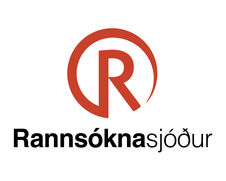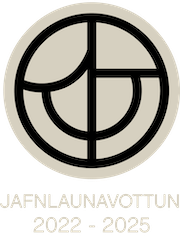Hlutverk sjálfsátsgensins ATG7 í krabbameinum - verkefni lokið
Fréttatilkynning verkefnisstjóra
Autophagy
is a degradation pathway important for cellular homeostasis. This is a way for
the cell to tidy up and degrade damaged cellular components for reuse. Autophagy is an
important way for the
cell to cope with stressful conditions such as starvation, by enhancing this
recycling mechanism when environmental nutrients are scarce.
This dual role of autophagy is reflected in its connection to cancer. Autophagy is believed to protect against the initial steps of tumour formation through the recycling function whereas the progression of the tumour may depend on the autophagy pathway as a stress-coping mechanism. We have identified a variant in the key autophagy gene ATG7 in human hepatic cancer resembling the phenotype of the mouse Atg7 liver specific knockout in which the mice develop tumours. We have characterized the function of the protein and found that ATG7 is expressed in two different isoforms, ATG7(1) and ATG7(2). The longer ATG7(1) isoform binds autophagy proteins and has autophagy activity whereas the shorter ATG7(2) isoform does not bind the autophagy machinery. Our analyses have revealed important information on the function of ATG7 in cancer, which may also be of importance for the activity in healthy cells.
∙ Information
on how the results will be applied
Autophagy is
a stress mechanism that cancer cells utilize to cope with stressful conditions.
As such, approaches to target the process in cancer are being explored, however, this is
tumour and inhibitor dependent. A better understanding of the autophagy network in cancer is thus
crucial to map out how and when autophagy intervention in cancer may be of importance.
∙ A list
of the project's outputs
Results from
the project have been reported at various conferences and meetings as well as
in
student theses and reviewed publications:
Greer, S.U.*, Ogmundsdottir, M.H.*, Chen, J., Delacruz, R.G.C., Sandoval, I.T.,
Jones, D.A., Haslem,
D.S., Romero, R., Fulde; G., Bell, J.M., Steingrimsson, E., Ji., H.P., Nadauld,
L.D. Risk of
cholangiocarcinoma is linked to the autophagy gene ATG7. *joint first authors.
Manuscript been
reviewed with minor comments, we are currently responding to comments.
Submitted to bioRxiv,
doi:https://doi.org/10.1101/836767
Ogmundsdottir, M.H., Fock, V., Sooman, L., Pogenberg, V., Dilshat, R.,
Bindesboll, C., Ogmundsdottir,
H.M., Simonsen, A., Wilmanns, M., Steingrimsson, E. (2018) A short isoform of
ATG7 fails to lipidate
LC3/GABARAP. Scientific Reports 8(1):14391.
Bindesboll, C., Aas, A., Ogmundsdottir, M.H., Reine, T., Zoncu, R., Simonsen,
A. (2020) NBEAL1 is
associated with increased risk of coronary artery disease and aberrant
cholesterol metabolism.
Scientific reports, 10(1):4528.
Heiti verkefnis:
Hlutverk sjálfsátsgensins ATG7 í krabbameinum / The role of
the autophagy gene ATG7 in cancer
Verkefnisstjóri: Margrét Helga Ögmundsdóttir, Háskóla Íslands
Tegund styrks: Verkefnisstyrkur
Styrktímabil: 2018-2020
Fjárhæð styrks: 56,124 millj. kr. alls
Tilvísunarnúmer Rannís:
184727


